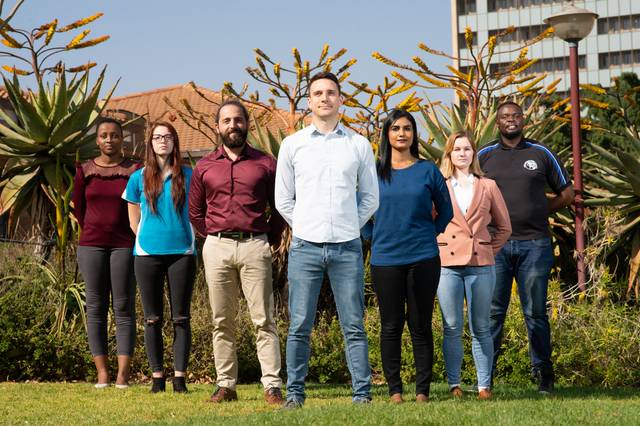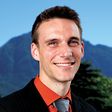
Young African Magazine
The reality of being a professional academic, as told by 2010 scholar Steven Hussey
Years in academia has taught 2010 scholar Steven Hussey a thing or two about resilience and just how challenging striving to be a change-maker can be. In this article he gives us some insight into the sheer magnitude of dedication required when building a career in academia.
It wasn’t easy beating above the excited chatter of a 2010 Mandela Rhodes cohort. I mean, I was a classical ISTJ (introverted, sensing, thinking, judging) personality type - introverted, a fan of order. I wasn’t loud, I wasn’t energised by heated group debates and I wasn’t inclined to jump up mid-dialogue, voicing an impassioned plea for revolution, reform or radical social change. What am I doing here? Is this some kind of mistake?
I think many Mandela Rhodes Scholars in the natural sciences have grappled with this imposter feeling. After all, we dealt with people when needed, but generally prefer to spend hours in isolation studying some strangely fascinating phenomenon. We don’t sound like agents of change, do we?
A decade later, having obtained a PhD in Genetics, travelled the world to collaborate on or present my research, published papers in top international journals, trained skilled professionals, brought millions of Rands in international funding into the country, landed a Senior Lecturer position and gained international recognition in science as an early-career academic, I don’t know what initially brought me to question my impact as a Mandela Rhodes Scholar in residence.
The reality of a career in academia Some see academia as a haven for idealistic thinkers who couldn’t find a “real” job. In reality, academia is tough, and that’s why so few make it in this sector. You need to be a visionary, an internationally competitive leader in your field. You have to acquire sustainable research funding, often from multiple sources or through complex engagements with funding bodies, and abiding by onerous reporting obligations. Often you are required to lecture increasingly large undergraduate classes, serve on innumerable committees, arrange events, oversee the daily operations of laboratories, be a project manager, an accountant, an administrator, a travel agent, business consultant, patent attorney, and media liaison. Not to mention a psychologist, a human resources officer, a superior, a mentor, an activist and a confidante.
In short, an academic is an overworked but passionate intellectual whose job description and contract work hours are a joke in light of the impossible task they face. And it really is an impossible – we are constantly grappling to balance high-impact academic outputs with heavy administrative and bureaucratic expectations.
Working with people is a central part of the job
There’s no doubt that my experience as a Mandela Rhodes Scholar has been instrumental in growing an internationally relevant research group. Intellect is important, but there are many PhD graduates who cannot lead research teams. Grant money helps, but it won’t guarantee success. Finding talented students is ideal, but usually it’s a mixed bag. I have had brilliant students and challenging ones. Some have been both at different stages of their careers. I have trained students from diverse backgrounds, South African and international. Encouragingly, most have been women. There have also been curve-balls from all sides when working with postgraduate students and the complex interpersonal issues we’ve faced together have pushed the boundaries of a student-supervisor relationship. This requirement to work closely with people isn’t easy for the ISTJ personality type that is overrepresented in science, but it’s a reality for most Principal Investigators and a far cry from the “Sheldon Cooper” media representation of early-career natural scientists.
Overcoming obstacles to achieve the extraordinary
I have faced several challenges on my path towards an academic career: the impacts of FeesMustFall campus closures in 2015 and 2016, devastating cuts to the National Research Foundation’s support of postgraduate student bursaries, restructuring of key government funding, increasing research costs due to a weakening Rand, undergraduate classes increasing by a hundred students in one year, and most recently the Covid-19 epidemic which has cause incalculable damage to degrees and research outputs. But there’s always a silver lining: these challenges have increased the resilience of the academic community to maximise teaching and research continuity even in dire circumstances. Online teaching has changed my approach to lecturing for the better - I’m developing critical thinking skills in our future scientists to a far greater extent than before.
Even in this uncertain environment, taking risks, aiming high and working hard pays off. Shortly before the March Lockdown, I was awarded a Prestigious (P) award rating from the National Research Foundation. A P rating is an accolade bestowed on exceptional early-career academics who have in the opinion of the vast majority of reviewers demonstrated the potential to be leading international academics. This is a rare award and one I accept with both pride and humility. It’s a clear indication that academics who call Africa home can be internationally impactful and competitive, and a reminder that the synergy of a diverse and inclusive research team has the potential to achieve ambitious goals in science.
The importance of mentorship and a global outlook
Effective mentorship of emerging science leaders is perhaps the greatest tool we have in developing impactful science in Africa. Imposter Syndrome is all too common among academics and has accompanied me in every new position and challenge I’ve faced - having good mentors in my career has helped me to remain focused and determined. Many of my mentors have been international collaborators; we should appreciate that science is global, and to achieve excellence in science on the continent we must also integrate and work with the international research community. We must not let the “brain drain” threat discourage us from sending our emerging champions to work alongside the best in the world. I can attribute much of my success in science in Africa to key opportunities I’ve pursued beyond our beautiful continent.
Dr Steven Hussey is a Senior Lecturer in the Department of Biochemistry, Genetics and Microbiology and the Forestry and Agricultural Biotechnology Institute at the University of Pretoria.







